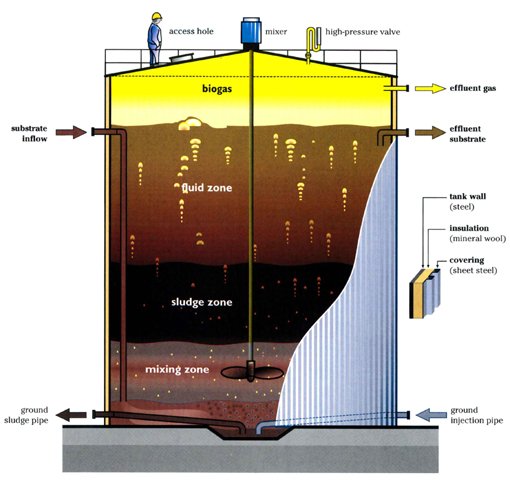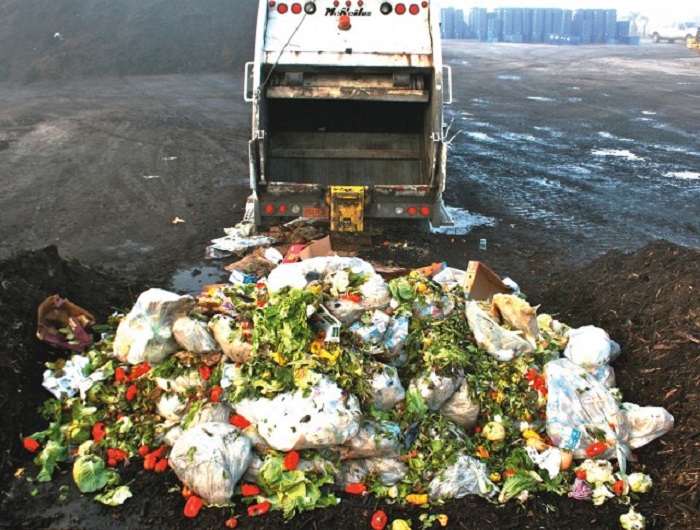The Sainsbury UK supermarket has become the world’s first market to remove itself from the national power grid and produce its own electricity entirely from food refuse. Its Cannock, Staffordshire location in England donates an all edible, leftover perishable items, but what’s gone bad is fed into a nearby anaerobic digester where it’s converted into electricity and transported back to the supermarket. using the company’s privately owned power line.
Anaerobic digesters are ginormous fermenting tanks which collect organic matter – anything ranging from compost to feces – and break down the compounds into a variety of interesting substances using bacteria and yeast. Yes, the process is similar to brewing beer and also germinates into runoff ethanol, however, the more useful substance here is biogas.

Biogas is a naturally occurring chemical that’s a blend of carbon dioxide and methane generated by rotting compost, manure, and other biological processes. The anaerobic digester simply expedites the operation by creating an ideal environment for methanogen bacteria to feast on. According to Sebastian Anthony over at ExtremeTech, the process isn’t much different from a cow’s stomach. “The biogas produced by the digester, which can be up to 75% methane, can then be used in much the same way as natural gas, such as heating and cooking, powering a combustion engine vehicle, or generating electricity with a steam turbine or combustion engine generator.”

Sainsbury’s single location harvests enough electricity to power 2,500 homes.
In fact, biogas is considered one of the best alternative sources of energy; studies estimate that 100 billion kilowatt hours of electricity could be generated per year as a result of the manure produced by all the cattle in the United States. That’s enough electricity to power at least a couple million homes! What’s more, the methane produced by decomposing cow manure is 21 times more potent than carbon dioxide, therefore, converting the manure into biogas before decomposition sets in will reduce greenhouse gases by 99 million metric tons. Lastly, using biogas we will reduce our dependency on fossil fuels such as coal and natural gas.
It’s unclear exactly how much food goes into creating all this power, but it seems to be a substantial amount. Which is quite scary considering all this food was at one point thrown away; this notion is even worse in light of the fact that Sainsbury is the only supermarket in the world to make its own electricity from compost. Just how much food are we wasting exactly?
Via ExtremeTech
Advertisement
Learn more about Electronic Products Magazine





